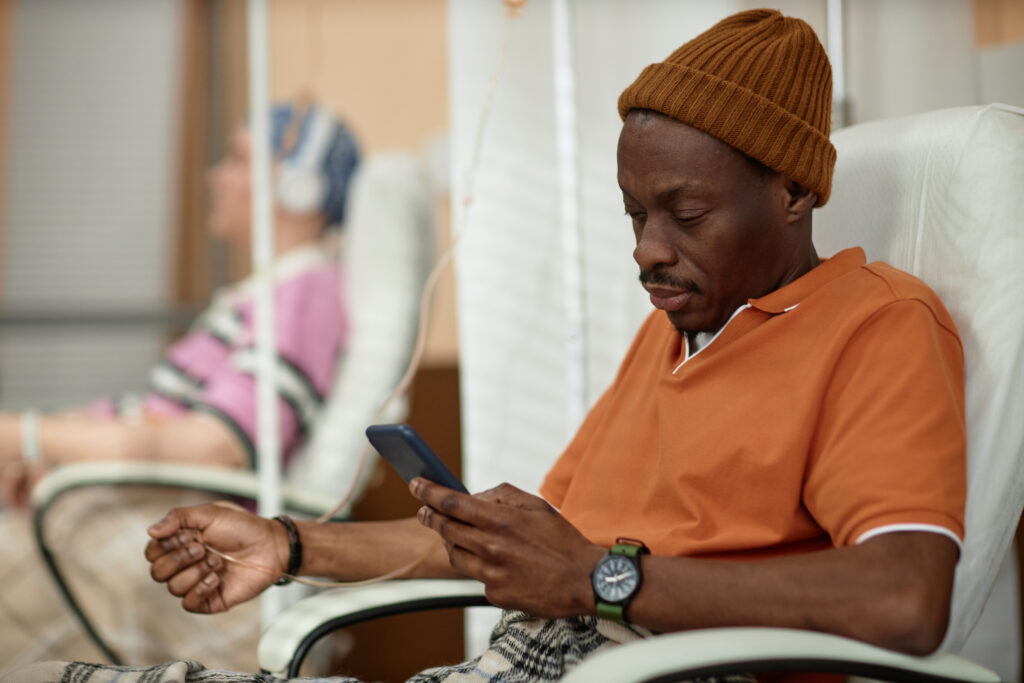
Lung cancer, or bronchogenic carcinoma, is the collective name for cancers that start in the lungs— usually in the airways (bronchi or bronchioles) or small air sacs (alveoli). Lung cancer is known for its aggressive nature and high mortality rate.
Eric Singhi, M.D., Assistant Professor at the Department of Thoracic, Head, and Neck Medical Oncology, at the University of Texas MD Anderson Cancer Center, says more people die from lung cancer than from breast, prostate, and colon cancers combined. “This type of cancer can metastasize early and widely, leading to frequent late-stage diagnosis.”
Dr. Singhi explains, “There are different types of lung cancer, which we generally categorize into non-small cell lung cancer (NSCLC), which represents 85 percent of all cases of lung cancer, and small cell lung cancer (SCLC). NSCLC tends to spread more slowly than SCLC. However, both NSCLC and SCLC can be aggressive, with SCLC often being particularly fast-growing and prone to early spread/metastasis.”
Despite medical advancements in treatments beyond conventional chemotherapy, such as targeted therapies and immunotherapy, Dr. Singhi says many lung cancers eventually become resistant to treatment, requiring ongoing research into new solutions.
What are clinical trials?
Clinical trials are research studies that evaluate the safety and efficacy of new treatments, including procedures, drugs, and therapies. They may also explore combinations of treatments and medications that are already available. These trials progress through several main stages: Phase I, II, and III, with some trials combining phases or including additional stages such as Phase 0 and Phase IV.
Phase I trials are the initial stage, where a new treatment is tested on a small group of 15 to 50 people. The primary goals of Phase I trials are to evaluate the treatment’s safety, determine the best method of administration (such as oral or intravenous), and identify any side effects. This phase can take several years to complete.
In Phase II, the focus shifts to assessing the treatment’s effectiveness against lung cancer. This phase involves a larger group of over 100 people and continues to gather information on possible side effects to further examine the treatment’s safety.
Phase III trials expand the treatment’s testing to even larger groups. The objectives in this phase are to confirm the treatment’s efficacy, monitor side effects, compare it to commonly used treatments, and collect comprehensive information to ensure its safe use. After completing Phase III, the U.S. Food and Drug Administration (FDA) reviews the trial results to determine whether the treatment is safe and effective enough for public use. Based on this review, the FDA decides whether to approve the treatment for general use.
Phase IV trials, also known as “post-marketing surveillance,” are conducted after the treatment has been licensed and approved by the FDA. These trials gather additional information on the treatment’s effects in various populations and monitor any long-term side effects. Phase IV trials may also study the treatment’s effectiveness against different types of cancer.
Clinical trials are a key element of developing new treatments, as they provide the necessary data for regulatory approval and public access to potentially life-saving therapies. They offer some patients the opportunity to access experimental treatments, contributing to medical knowledge and potentially saving many lives.
Benefits of participating in a lung cancer clinical trial
Dr. Singhi says, “There are many benefits to enrollment in clinical trials, such as potentially more effective or safer treatments, active involvement in health care decisions, and a direct contribution to advanced understanding and potential improvements in disease management.”
Potential risks include unknown side effects, ineffective treatment, and time and financial losses during the trial. However, these concerns are outlined before a patient gives informed consent.
“Barriers to clinical trial enrollment include lack of awareness among health care clinicians and patients about available trials, eligibility criteria that can limit participation, time and travel commitments, the financial burden associated with travel, language and cultural challenges, and patients’ distrust of researchers and clinicians,” states Dr. Singhi.
Types of clinical trials for lung cancer
Lung cancer clinical trials frequently focus on cutting-edge approaches.
For example, targeted therapy trials usually investigate new drugs that interfere with specific molecules responsible for tumor growth. Immunotherapy trials aim to enhance the body’s immune response to lung cancer cells. These trials often explore treatments like checkpoint inhibitors, cancer vaccines, and adoptive T-cell therapy, all of which are designed to boost the immune system’s ability to fight cancer. Additionally, other trials investigate new combinations of chemotherapy drugs.
Ongoing lung cancer clinical trials are being conducted at leading institutions, including the National Cancer Institute, MD Anderson Cancer Center, and Memorial Sloan Kettering Cancer Center. You can learn more about clinical trials offered in the United States by visiting the NIH National Cancer Institute website.
Finding a lung cancer clinical trial
Finding a suitable clinical trial can be challenging.
The first step is to talk to your doctor or health care provider. They can help you understand your options and recommend specific trials. They might also assist in submitting your name for approval, especially for invitation-only trials.
Several resources are available to help patients and their families find clinical trials. Before you begin searching, gather your medical information to quickly check eligibility. Online databases offer comprehensive listings of clinical trials, including details about eligibility, locations, and contact information. ClinicalTrials.gov is the most extensive database, allowing you to search by tumor type and other criteria.
The National Cancer Institute provides resources and support for finding clinical trials. Larger cancer centers, including the Mayo Clinic Lung Cancer Program, Memorial Sloan Kettering Cancer Center, and Stanford Medicine, also maintain databases of lung cancer clinical trials offered at their institutions. Also, search BlackDoctor.org’s vetted list of clinical trials aimed at Black Americans.
Considerations for participation in lung cancer clinical trials
Before deciding to participate in a clinical trial, it is best to consider several factors. One is the eligibility criteria. Each trial has specific requirements based on age, type of cancer, stage of cancer, and overall health. Understanding these criteria will help you decide if and when a trial is suitable for you.
Another important consideration is the potential risks. Clinical trials can involve unknown side effects and the possibility that the new treatment just doesn’t work. It is crucial to discuss these risks with your family and health care team.
Additionally, many patients fear receiving a placebo or the impact treatment may have on their daily lives. Addressing these concerns with your doctor can help you make a well-informed decision.









